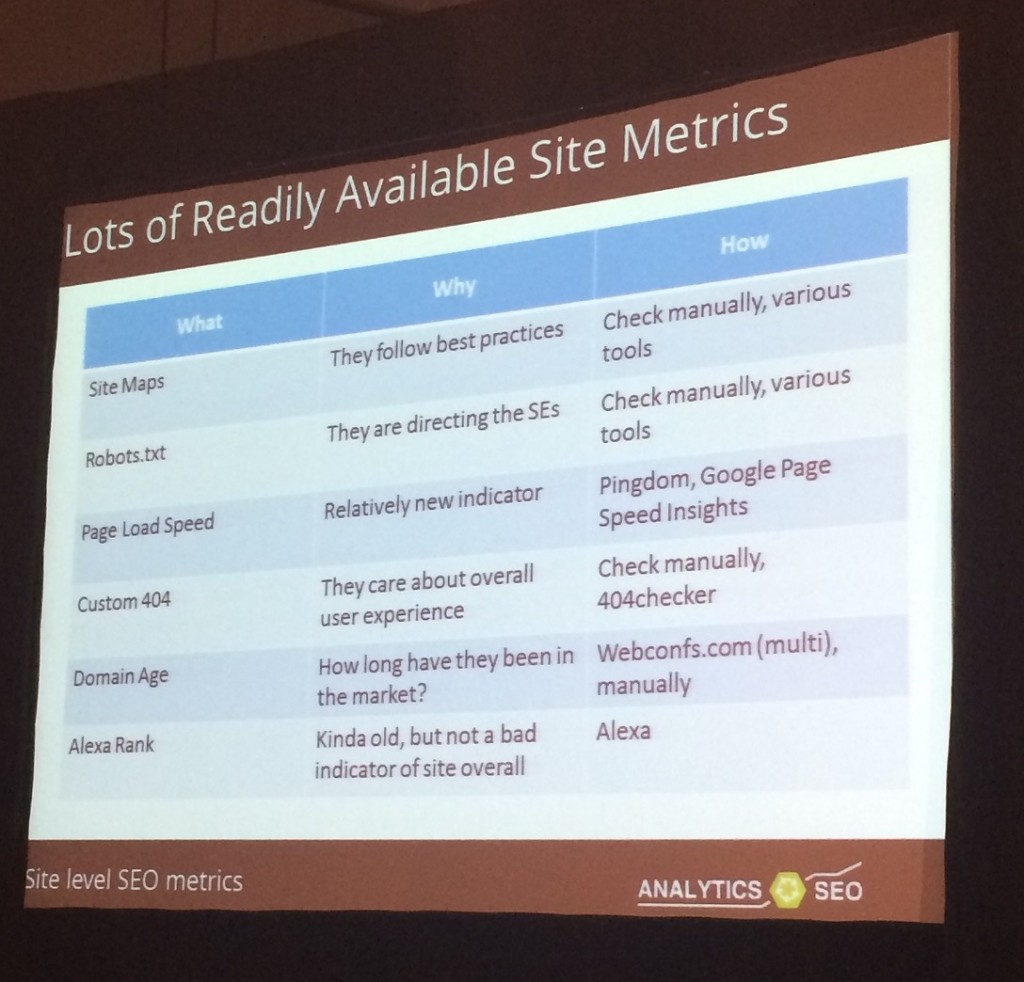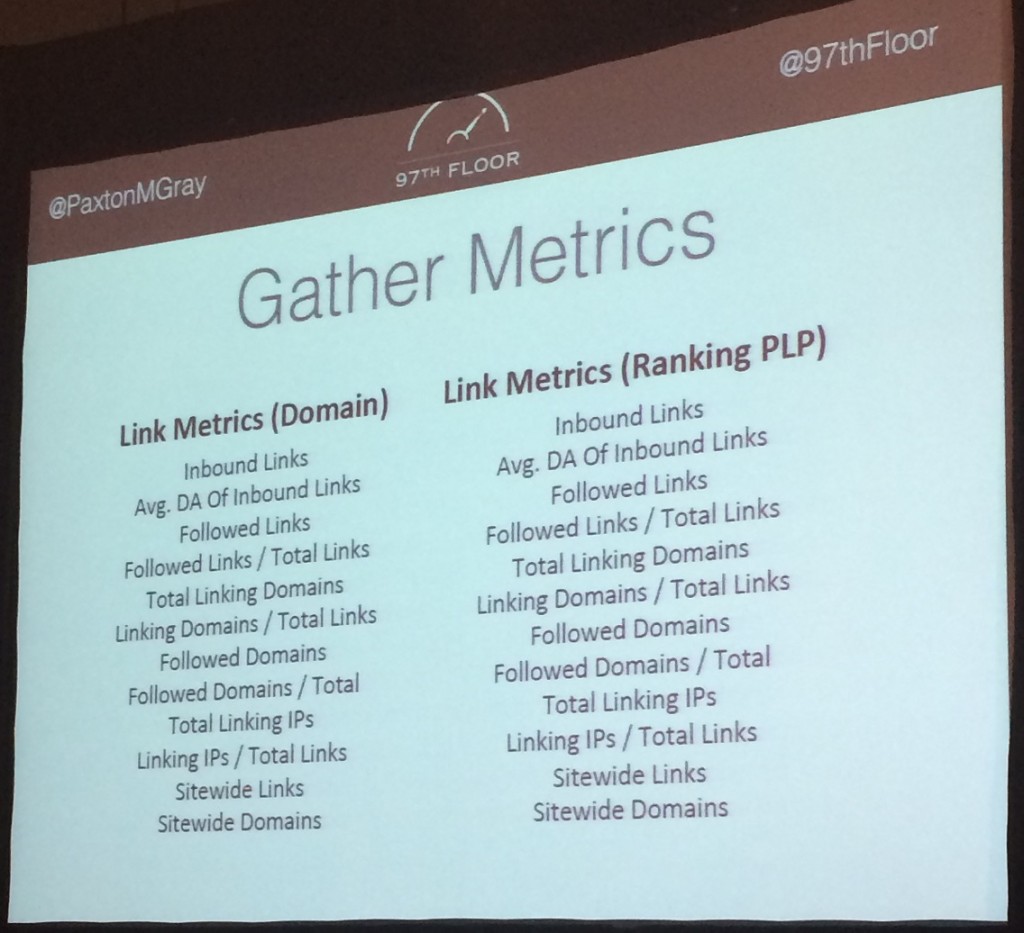SMX East Liveblog: Competitive Research for SEO
This session dives into competitive research that will help you identify your true competition (it isn’t always who you think it is) and then assess why and how they are outranking you. Armed with this information, you can fight back and rise to the top of the SERP.
Speakers:
- Casie Gillette, Director of Online Marketing, KoMarketing (@casieg)
- Paxton Gray, Lead Digital Marketer, 97th Floor (@paxtonmgray)
- Dennis Hart, President, Analytics SEO (@click2dennis)
Dennis Hart: Leap Frog Your Competitors’ SEO Strategies
“Everyone wants to overtake their competitors, right?” Hart says.
It’s not necessarily obvious to understand who they are – you can ask your clients or shareholders, but they might only supply local competitors. And online, local competitors can be the least of your worries. There can be competitors that your clients don’t even know about wreaking havoc via Angie’s List or other directories.
Find your TRUE online competitors by searching for your top keywords – whoever is ranking ahead of you is now your target.
Use Big Data to Determine …
- How many competing sites?
- How many organic ranking keywords?
- What is the market search volume (use SEMrush, AdWords)?
- Is the market growing or declining? Is it seasonal?
- Which keywords are trending up/down, which are seasonal?
Sometimes competitors can surprise you – for example, the site MeetingZone.com outranks Match.com for some queries – but you would never think of MeetingZone.com as a competitor to Match.com without that data.
Evaluate your keyword competitors‘ sites using the following metrics:
Not all links are equal. Assess the quality of your competitors’ links looking at:
- Trust Flow, Citation Flow (suggested tool: Majestic)
- Domain Authority, Page Authority (suggested tool: Moz)
- Domain Rank (suggested tool: ahrefs)
Casie Gillette and How to Spy on Competitors
SEO is no longer about one specific tactic. Comb the desert and find out as much information about your competitors’ practices and sites as you can.
Start by looking at the source code. Are they using:
- SEO plugins
- A/B Testing Codes
- Schema Markup
- Open Graph Tags
If they’re doing twenty things and you’re doing four, that might be why you’re not ranking.
Use these tools to track competitors’ content:
- Rackedcontent – Alerts you via email when a site’s source code changes, and also stores previous version.
- ChangeDetection – Also tracks content. This is how you spy on the competition.
Understanding Links
Gillette recommends using the following tools for link analysis:
- Open Site Explorer (from Moz)
- MajesticSEO
- Research Central
TIP: Look at who else is on their IP – are they creating microsites?
Content Analysis
Use the Screaming Frog SEO Spider Tool to determine what types of content your competition is creating:
- /blog
- /articles
- /news
- /whitepapers
- /videos
- /resources
HACK: Some sites block Screaming Frog – so change the user agent to Google.
Social Competition
Use BuzzSumo to see a site’s top shared content and who those sharers are. Gillette also recommends Google+ Ripples and Facebook Pages to Watch for social analysis.
Paxton Gray: Cashing In with Deliberate Research
Gray cannot stress enough the importance of competitive research. He shares a the story of Noah Phelps, a soldier in the Revolutionary War who infiltrated the British army by dressing as a merchant and wandering into Fort Ticonderoga to gather key information about the enemies’ gun powder and man power. Based on his “research,” the American army was able to take the Fort when it was at its weakest and not lose a single life on either side — all this was possible because of research. The moral of Paxton’s story? For every hour you spend on competitive research, you will save an hour on execution.
5 Steps for Killer Keyword Research
- Keyword Research
- Gather Metrics
- Identify On-Page Wins
- Link Gap Score
- Link Building Battle Plan
When it comes to gathering metrics, Gray advises looking at the following metrics for every keyword. “It’s a tedious process, but it pays off,” he says.
26,000+ professionals, marketers and SEOs read the Bruce Clay Blog
Subscribe now for free to get:
- Expert SEO insights from the "Father of SEO."
- Proven SEO strategies to optimize website performance.
- SEO advice to earn more website traffic, higher search ranking and increased revenue.

LEAVE A REPLY












